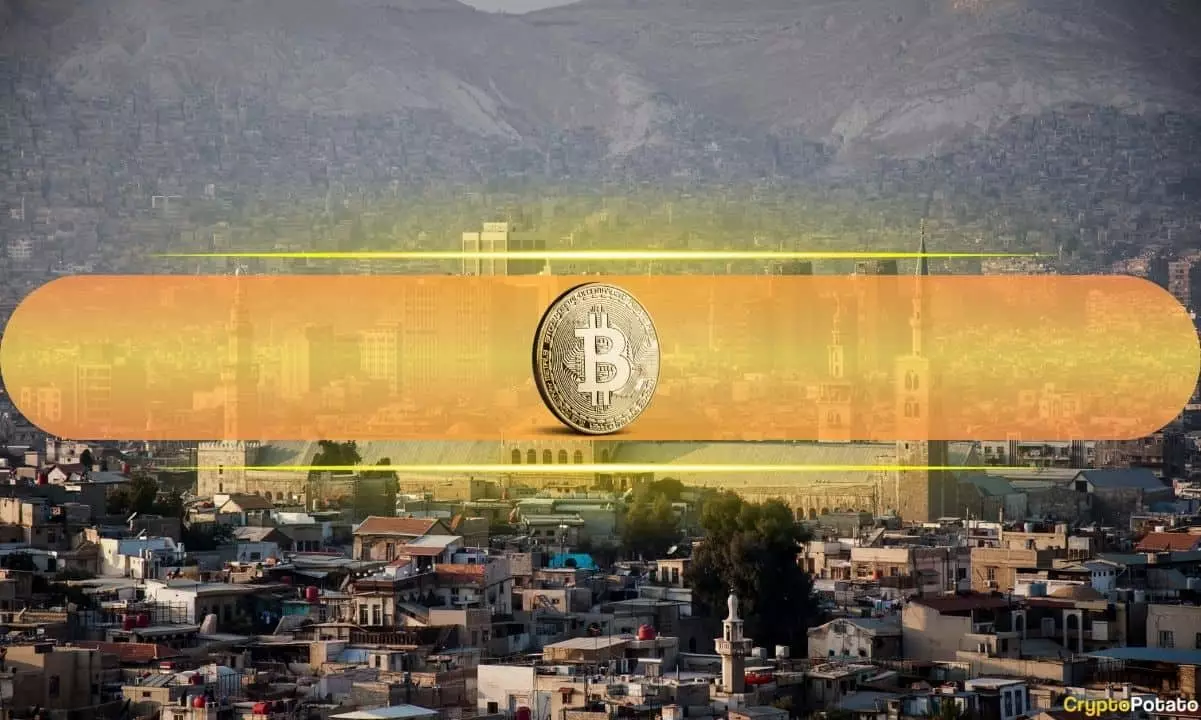In a move that could redefine the contours of Syria’s economy, the Syrian Center for Economic Research (SCER) has unveiled a proposal that advocates for the legalization of Bitcoin and the digital transformation of the Syrian pound. This initiative is not merely a financial maneuver; it symbolizes a broader vision for a country grappling with the scars of war and rampant inflation. Observing the devastating impact of hyperinflation and the devaluation of the national currency, the SCER’s proposal can be seen as an ambitious roadmap designed to rejuvenate the economy. By fostering a strong digital economy as well as centralized and decentralized banking infrastructures, this plan presents a proactive approach to build resilience in an economy vulnerable to both internal and external shocks.
At the heart of the SCER’s strategy is a comprehensive regulatory framework aimed at legalizing Bitcoin transactions, trading, and mining in accordance with international standards. This step is monumental, as it acknowledges the growing influence of digital currencies in global finance and aims to integrate Syria into this evolving landscape. Furthermore, the proposed digitization of the Syrian pound stands out as a pivotal component of the initiative. By minting the currency on a blockchain and backing it with liquid assets, including gold, the SCER plans to enhance transaction security and transparency. This innovative approach addresses the endemic mistrust that has overshadowed traditional banking in Syria and seeks to lay the groundwork for a more stable financial future.
One of the most promising aspects of this proposal is its potential to empower Syrian entrepreneurs and innovators. By creating a free-market environment free from monopolistic constraints, the initiative encourages local businesses to flourish. Notably, the focus on private property rights and self-custody of digital assets positions citizens to have greater control over their financial future. As startups emerge to provide blockchain and cryptocurrency services, a new wave of technological entrepreneurship could transform the economic landscape, fostering job creation and innovation. Ultimately, this endeavor serves not just to stabilize the economy, but also to invigorate a generation of Syrian business leaders who can drive progress from within.
While the SCER’s proposal is promising, it must confront a multitude of obstacles. Chief among these is the technological infrastructure necessary to support such a monumental shift. The transition from a traditional currency system to a digital one requires not only investments in technology but also a significant increase in public awareness and trust in these new financial systems. Additionally, the geopolitical landscape presents its own set of challenges. The transitional government’s ability to implement these reforms is hampered by existing international sanctions and diplomatic isolation. SCER acknowledges these hurdles and has candidly stated that the transitional government currently prioritizes more immediate issues, casting shadows over the timing and feasibility of the proposal.
The recent appointment of Syria’s new Foreign Minister, Asaad Hassan al-Shibani, brings a renewed focus on the detrimental impact of international sanctions. Al-Shibani’s assertion that these measures are outdated highlights the potential economic renaissance that could follow lifting sanctions, which were initially imposed in response to the regime’s past repression. As the interim administration seeks to stabilize the country and foster international relations, the call to reassess sanctions is integral to creating an environment conducive to economic recovery. The SCER emphasizes that their proposal is not a means to circumvent these sanctions but a genuine attempt to engage diplomatically and legally with the international community, advocating for a comprehensive alleviation of barriers to economic development.
The SCER’s proposal for the legalization of Bitcoin and the digitization of the Syrian pound has the potential to significantly reshape Syria’s economic landscape. While it faces numerous challenges, it also opens doors to opportunity, paving the way for a more resilient and diversified economy. Through careful planning and the gradual rebuilding of trust in financial institutions, Syria could harness the power of digital currencies to heal and revitalize its economy. As the nation stands on the brink of a historical transformation, the call for innovative financial stewardship, combined with a reevaluation of global relationships, holds the key to unlocking the full potential of a post-conflict Syria.

